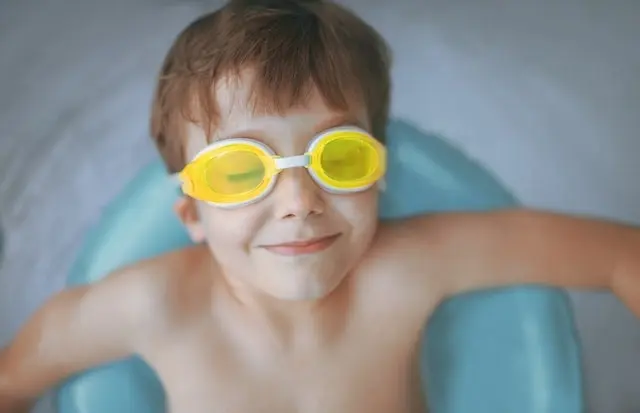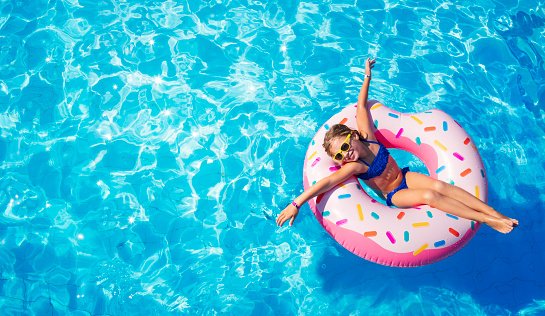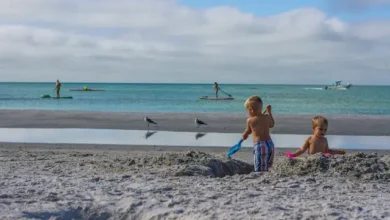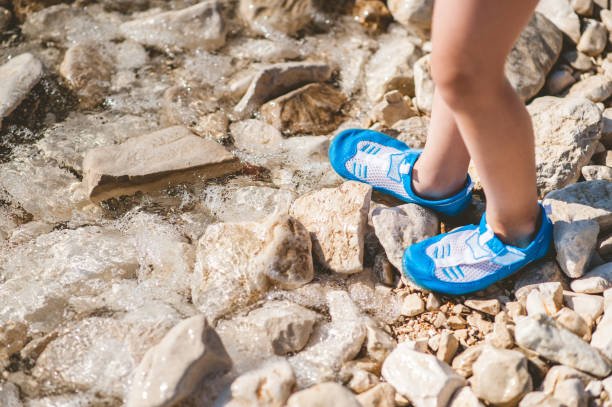10 Crucial Pool Safety Tips Every Parent Must Know
Swimming is a fun and reinforcing experience for babies, encouraging a love for water and promoting early aquatic skills. Ensuring pool safety for babies is most important. A baby’s sensitivity to water-related accidents demands keen-eyed attention. In this guide, we will dig into vital pool safety measures and practices to create a secure environment for your little one’s aquatic adventures.
In this article,
Why is pool safety important for babies?
Pool safety is not just an option. It is essential when it comes to babies. Their limited physical capabilities, curiosity, and lack of understanding about water dangers put them at a higher risk of accidents. Drawing, in particular, is a significant concern, ranking as one of the leading causes of unintentional deaths among children aged one to four. Babies are naturally drawn to water, and even a few inches of water can pose a serious threat. Therefore, strict pool safety measures are crucial to protecting them from potential hazards.
What are the must-have safety measures around the pool?

Generating layers of protection around the pool is necessary. A four-sided fence that surrounds the pool area with a self-latching gate is a non-negotiable safety measure. This fence acts as a physical barrier. It prevents unsupervised access to the pool. In addition, all doors and windows that provide direct access to the pool area should be equipped with locks. Installing pull alarms further increases safety by emitting a loud alert if someone enters the pool area unattended. These alarms add an extra layer of security, mainly when children are present.
What type of pool Fence is most effective?
When it comes to choosing a pool fence, transparency and durability are key factors. Mesh or transparent fences are highly recommended. Unlike solid barriers, mesh fences allow you to maintain a clear line of sight to the pool. This visual accessibility enables you to monitor activities in and around the water. In addition, mesh fences are sturdy and resistant to wear, making them a reliable choice for long-term safety.
Should I invest in a pool alarm?
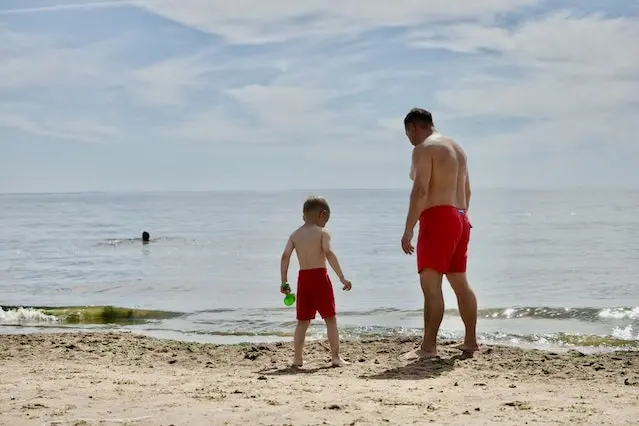
Yes, investing in a pool alarm is a wise decision. Pool alarms serve as an indispensable safety tool. They offer an audible warning if someone unauthorized enters the pool area. This immediate notification is crucial, especially when babies and young children are present. Pool alarms act as a vigilant second pair of eyes, providing an additional layer of protection against potential accidents.
What is the safest floatation device for my baby?
The safety of your baby in and around water depends on the type of floatation device you choose. Opt for a U.S. Coast Guard-approved life jacket designed specifically for infants. These life jackets are meticulously crafted to fit snugly and securely on your baby, ensuring they remain afloat while keeping their head above water. Look for adjustable straps and a comfortable design to ensure your baby’s comfort and safety.
How can I teach my baby pool safety?
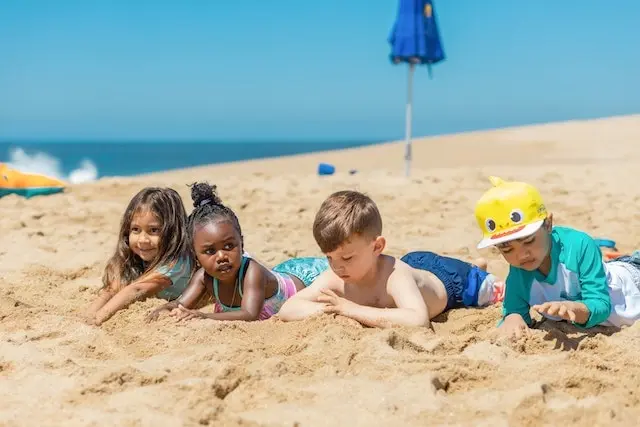
Teaching your baby water safety starts with cultivating water awareness. Begin with gentle introductions to the water in a reassuring manner. Hold your baby securely and create positive associations with the water through play. As your baby grows more accustomed to the water, introduce basic water safety skills, such as teaching them to float on their back and reach for the pool’s edge. Patience, positive reinforcement, and making these activities enjoyable will contribute to building a strong foundation of water safety.
At what age can my baby start swimming lessons?
According to experts’ suggestions, the perfect age to begin swimming lessons for babies is typically around six months. However, it’s very important to consult your paediatrician before enrolling your baby in lessons. A paediatrician will assess your baby’s physical readiness for swimming activities. Timing is crucial; choose a time for lessons when your baby is well-rested and in a good mood. This will make the experience enjoyable, memorable, and helpful to learning. This will make the baby habituated to the water.
What precautions should I take during pool parties?
Pool parties can be a joyful experience for families, but they also require heightened vigilance. Designate a responsible ” water watcher” during pool gatherings. This individual’s sole responsibility is to closely monitor the pool area, ensuring the safety of all swimmers, especially children. The designated water watcher should be free from, distractions, such as smartphones or socializing, to maintain a continuous watch.
How do I baby-proof the pool area?
Baby-proofing the pool area is essential to minimize potential risk. When not in use, remove toys from the pool area to prevent attracting children to the water unsupervised. Store pool chemicals and equipment securely and out of reach. Regularly inspect the pool area for any sharp edges, protruding objects, or potential hazards. Address any issues promptly to create a safe environment conducive to exploration.
What steps can I take to prevent Drowning accidents?
Taking proactive steps is crucial to preventing accidents. Enroll yourself and your child in swimming lessons to learn vital water safety skills and foster confidence in the water. Supervision is paramount. Always keep a watchful eye on your child when they are near water, even if they are proficient swimmers. Learning CPR, particularly infant CPR, is a valuable skill that can be lifesaving in emergencies.
Conclusion:
Pool safety for babies needs careful planning, careful observation, and education. By actively following these comprehensive pool safety guidelines, you can create a safe and enjoyable environment for your baby to explore the joys of swimming while reducing potential risks. Always remember that safety around the pool is a shared responsibility, and it is not better to be wrong on the side of care when it comes to protecting your child’s well-being.
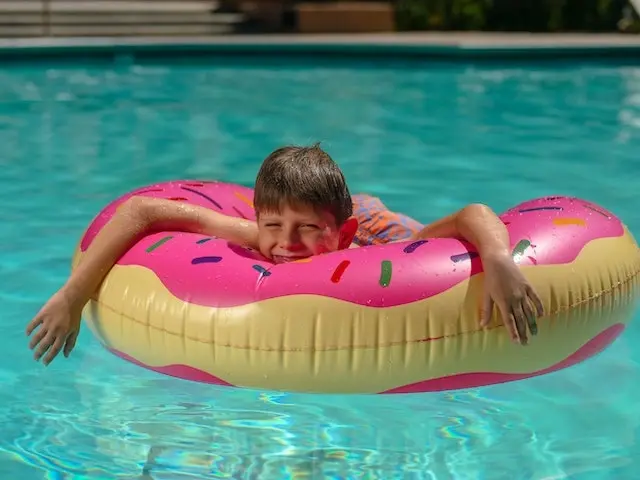
Are floatation devices a substitute for adult supervision in the pool?
No, floatation devices are not a substitute for adult supervision. While floatation devices like life jackets can provide an added layer of safety, they should never replace vigilant adult supervision. Accidents can happen even with floatation devices, so it’s essential to always watch your baby closely when they are in or near the water, regardless of the type of floatation device they are using.
Can I use inflatable or floating toys as a substitute for floatation devices or life jackets for my baby?
No, inflatable or floating toys should never be used as a substitute for proper floatation devices or life jackets. These toys are not designed or tested for safety in the same way that approved life jackets are. Using inflatable toys as floatation devices can be risky, as they can easily deflate or tip over, potentially putting your baby at risk in the water. Always rely on U.S. Coast Guard-approved infant life jackets or floatation devices specifically designed for your baby’s safety when they are in or around water.
